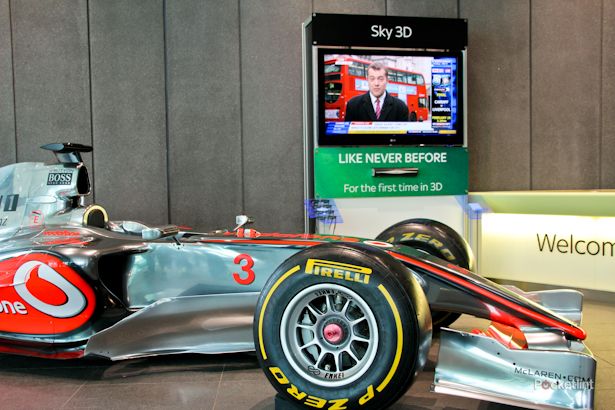Many Formula One fans were shocked when they heard that Sky was to become the major broadcaster for the motorsport's forthcoming season and beyond, bemoaning that the broadcaster and paid TV platform was nigh-on stealing the rights from terrestrial television. However, Pocket-lint has learnt that it was the BBC itself that approached Sky to form a broadcast partnership, or face losing its own right to show F1 completely.
The deal struck means that 10 of the 20 races in the forthcoming season will be shown exclusively on Sky's new F1 HD channel and, therefore, will be available only through a paid subscription to Sky or Virgin Media (which will carry the SD version of the channel). The others will be simulcast by the BBC.
Because of budgetry constraints, however, the Beeb may have ended up losing the right to show any races at all, if a deal with Sky hadn't been struck:
"The BBC came to us. We didn’t go to the BBC and we didn’t go to Formula One," Pocket-lint was told by Martin Turner, executive producer of F1 HD, in a briefing at the Sky Studios complex in Isleworth.
"The BBC was under a lot of pressure with budgets, and they felt that this was a way they could keep Formula One on the BBC in some form or another. The contract could have gone a different way. They could have asked to be relieved of the contract and they [Formula One] could’ve put it out to terrestrial bidders and not involved us."
It certainly wasn't something Sky was expecting, but as the saying goes "never look a gift horse in the mouth": "When we got the rights it was a surprise to a lot of us," said Turner.
"It was something we wanted to be part of for quite some time because there had been this feeling that Formula One would never get on paid television. But, the broadcasting landscape has changed so much.
"Formula One has always been - certainly in the last 35 years - exclusive broadcasting for one or the other [major terrestrial channels], mostly the BBC. That’s unlike every other sport virtually, which has had competing broadcasts at the same time.
"That’s what made it surprising, that all of a sudden there’ll be two people in the market. But that as a principal isn’t surprising at all. It’s just surprising in this particular environment."

Turner also pointed to recent history to suggest that sceptical fans will be won over by the satellite broadcaster and its plans for the sport. Many were outraged when ITV took the rights from the BBC for several years, but the commercial channel introduced many new, now established, pleasant features.
"When ITV got Formula One in ’97, that was a massive surprise and a massive shock. But actually, they did a brilliant job," he told us.
"They were criticised for commercial breaks – which we won’t have on either qualifying or race day – but they moved the coverage on a lot. They were the people who introduced presentation in the pits. They were the people who introduced a far more educating line to their programming. And they committed a lot more resources. They went on site to every Grand Prix."
Of course, the ITV and BBC heritage in F1 broadcasting does have one drawback that could prove a major challenge.
"The benchmark has been set very, very high for Formula One broadcasting. Everyone accepts that the BBC has done such a fantastic job. It’s probably their highest quality product," said Turner.
"So, to come in where it’s been done brilliantly already, to share broadcasting rights with another broadcaster, to establish Sky Sports reputation [in Formula One] straight away, yeah, I’m starting to worry myself…"
Sky F1 HD launches on 9 March. It will also be available in standard definition on Virgin Media and through the Sky Go family of applications.
What do you think of Sky having the exclusive rights to half the F1 races? Let us know in the comments below...
- Sky could offer Formula One in 3D
- Sky teases details of Sky Race Control F1 iPad app and interactive services

